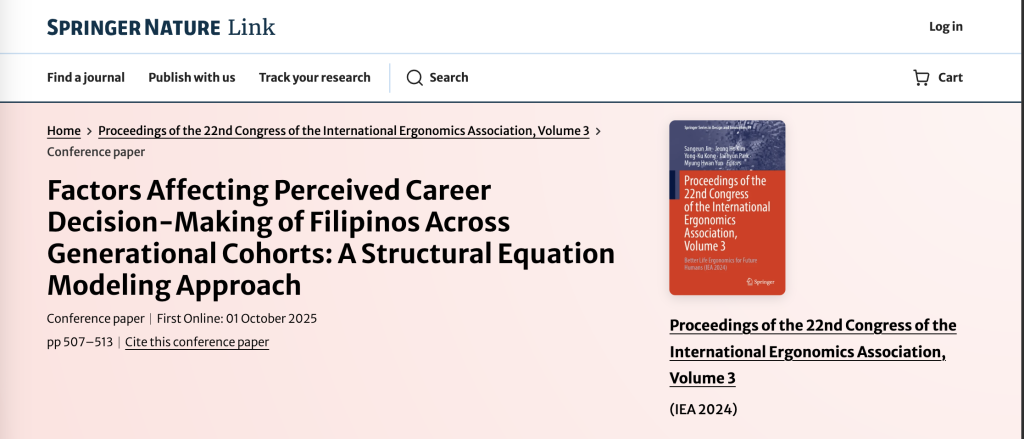
A study entitled “Factors Affecting Perceived Career Decision-Making of Filipinos Across Generational Cohorts: A Structural Equation Modeling Approach” explored the relationship between generational cohorts, cultural influences, and behavioral intention in career decision-making among Filipinos.
The research was penned by BS Industrial Engineering students Nicole Ann L. Angkaw, Sarah Grace Emmanuelle S. Cabanacan, Kristel Ann S. Catiis, Julia Beatrice Marie L. Maquinto, and their mentor, Department of Industrial Engineering academic staff and Laboratory Supervisor Engr. Yoshiki B. Kurata, PhD, CIE, Assoc. ASEAN Engr.

For the researchers, some individuals experienced pressure and difficulty as they faced their independence in their career choices. Although one’s interest, perception, and judgment may be influenced by career knowledge, perceived benefits, and culture, this may result in hesitation and uncertainty in their chosen career.
These variables were likewise integrated into the Generational Cohort Theory (GCT) and Theory of Planned Behavior (TPB) to discover how the significant variables affect the career decision-making of Filipinos. They utilized self-administered questionnaires to collect and analyze data via structural equation modeling using IBM SPSS AMOS.
Finally, it was discovered that perceived benefits (PB) and career knowledge (CK) have a relationship with attitude toward the behavior (ATB). At the same time, Culture (C) was identified as directly related to Social Norms (SN).
Moreover, ATB and SN have a significant relationship with behavioral intention (BI), as BI refers to the perception of correct decision (PCD).
Through analysis of variance, results showed that generational cohorts (GC) have a direct significance with PB and CK.
The study was published in the Proceedings of the 22nd Congress of the International Ergonomics Association (IEA 2024) under the Springer Series in Design and Innovation (SSDI, Volume 41), a globally recognized publication series that collects innovation, design, and human-centered research.
Read the abstract: https://link.springer.com/chapter/10.1007/978-981-96-9330-6_73


